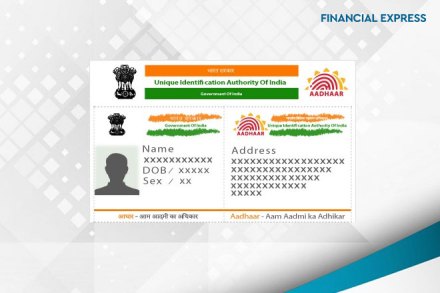After mandatory linking of Aadhaar with Permanent Account Number (PAN), bank accounts and mobile numbers, now one has to link it with all existing and new insurance policies. It is also mandatory to link all existing policies with PAN. If both the linkings are not done, insurance firms may hold back claims payments. In a circular, Insurance Regulatory and Development Authority of India (Irdai) has said linkage of Aadhaar number to insurance policies is mandatory under the Prevention of Money Laundering (Maintenance of Records) Second Amendment Rules, 2017. The regulator’s circular underlines that the rules have statutory force and as such life and general insurers (including standalone health insurers) will have to implement them without awaiting further instructions.
Linking life and non-life policies
At present, there are 24 life insurance companies and 33 general insurers (including standalone health insurance firms) operating in the country. Many insurers take PAN for all life policies although the regulator requires them for cash premium above Rs 50,000. In fact, in June the government had notified the Prevention of Money Laundering (Maintenance of Records) Second Amendment Rules, 2017, making Aaadhar and PAN/Form 60 mandatory for availing financial services including insurance and also for linking the existing policies with the same. Ashish Kumar Srivastava, MD & CEO, PNB MetLife, says it is a welcome move for the industry. “If the insured is involved in any untoward incident, the family can now get easy access to his financial information. This will go a long way to ease their burden. This linkage will also bring greater transparency and efficiency to the insurance process, thus aligning with the overall digitalisation agenda,” he says.
Streamling KYC process
The regulator’s linkage of Aadhaar with insurance policies will be beneficial during claims settlement for establishing the identity of the claimant. It will reduce fraudulent claims and increase the speed of settlement. Antony Jacob, CEO, Apollo Munich Health Insurance says the regulator’s move to make linking of Aadhaar with insurance policies mandatory is a welcome announcement. “This new mandate will further help in streamlining KYC processes for customers and shall prevent fraudulent claims. It will further make the claim process faster and ensure better customer experience. There may be some inconvenience in the beginning but it a win-win in the long term,” he says.
Similarly, Sandeep Patel, MD and CEO of Cigna TTK Health Insurance says based on the unique identity, it will now be simple and easy to authenticate customers. “It will bring in efficiency to our processes while onboarding a customer to settling claims and therefore offer a better customer experience,” he says.
Implementation challenges
While linking of Aadhaar with insurance policies will be beneficial to insurers, it will be a logistical challenge for them. Suresh Agarwal, chief distribution officer, Kotak Life Insurance, says there are likely to be short-term operational challenges in implementation but in the medium to long-term it is positive for the industry and customers”. Though the process of linking Aadhaar to policies has not been clarified yet, industry experts say it would be similar to the process done by banks. A policyholder can link Aadhaar either through text messages from mobile phone, online or even by visiting the branch of the insurer.
